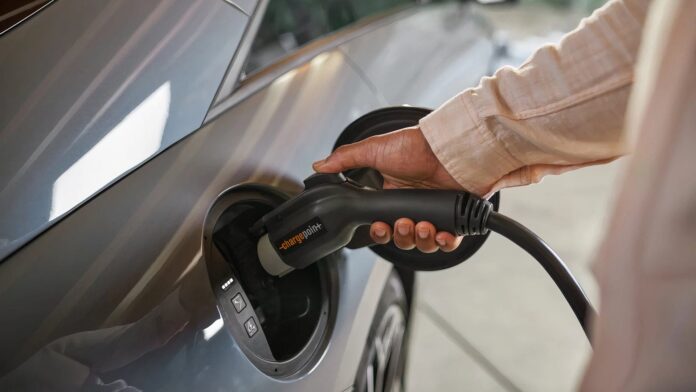How much of an impact do EV tax credits have on sales of electric cars? A critical role, says automotive analyst group J.D. Power. It says that nearly two-thirds of premium EV buyers consider tax credits and incentives to be the primary driver of their EV purchase decision. In other words, not the typical Nissan Leaf buyer, but more likely a Volkswagen ID. Buzz fan.
Related
California Won’t Let Trump Trash EV Incentives
The Governor of California has said he’ll bring back EV incentives if the Trump Administration cuts them.
Surprisingly, though, buyers of more mainstream EVs put less weight on the tax incentives. Buyers of two of the most popular EV brands were far less likely to pick tax incentives as the primary reason for their move to electric vehicles.
Two Thirds Of Premium Buyers But Only Half Of Mainstream EV Buyers Driven By Incentives
According to the J.D. Power E-Vision Intelligence report, 64 percent of premium brand EV buyers and 49 percent of mass-market EV buyers said tax credits and incentives were their primary reason for purchasing or leasing an EV.
Among specific brands, Volkswagen buyers called the incentive their main driver, with 81 percent selecting it as a reason for purchase. Chevrolet (77 percent) and Tesla buyers (72 percent) were also driven by the credits.
Hyundai, Kia, and Toyota EV shoppers were less concerned with incentives when it came to the EV purchase. Just 32 percent of Hyundai buyers said it was a primary reason, with Kia at 24 percent and Toyota at just 21 percent.

Related
Toyota Makes Finding EV Incentives Easier
The automaker will help you find federal, state, and even municipal incentives and credits.

Add CarBuzz to your Google News feed.
Despite the credit being a big deal, buyers found it confusing. Just 17 percent told J.D. Power they had a “strong” understanding of the incentives. 43 percent called their understanding “vague,” “minimal” or “don’t know.”
According to the report, 97 percent of new EV leases and 81 percent of purchases received the federal Clean Vehicle credit. That’s down slightly from 88 percent overall in 2023 but well up from 23 percent in 2022. In order to get the $7,500 incentive with a purchase, vehicles must be assembled in North America, with at least half of its battery components produced or assembled here. The restriction does not apply to leases.
Automaker Group Wants Incentives To Stay
With President-elect Trump and his transition team expected to be targeting the $7,500 federal EV tax credit next year, automakers are nervous. The Alliance for Automotive Innovation, a trade group representing major automakers and suppliers, wrote a letter to the transition team expressing the importance of EVs to the auto sector.
While the group expressed concerns over what it called “unfair competition” from China and California emissions standards, it also stressed the importance of maintaining incentives and credits that “support global competitiveness” for US EV manufacturing.

Related
Without Incentives, EVs Would Be In BIG Trouble
Year-on-year figures suggest the EV market is improving, but one analyst says there’s reason for concern.
Based on the J.D. Power data, it could be VW, Chevrolet, and Tesla that are most affected by any changes to the credits. Hyundai and Kia, which together make up the third-largest brand for EV sales, might not be worried. Of course, that doesn’t take into account the big changes to many of the group’s EVs this year. Hyundai has started building EVs in the US to help them take advantage of the credit, a move that could cost the company big if those credits go away and sales tank.

